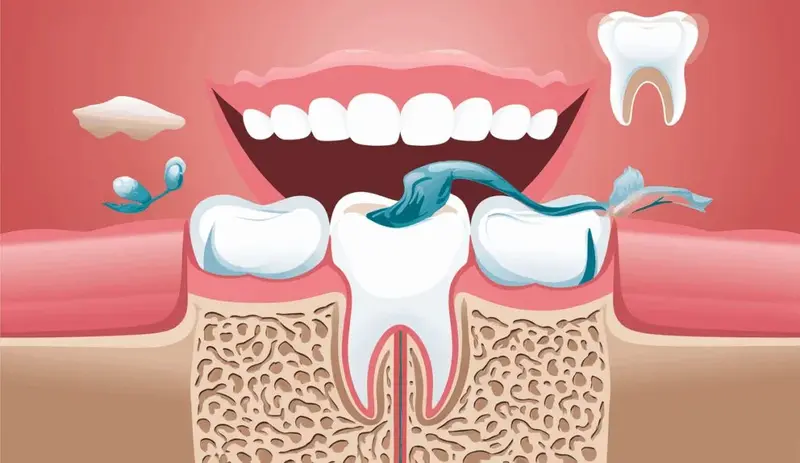
You’re brushing your teeth one morning and notice something weird-your gums look a little red. When you spit, there’s a hint of blood in the sink. Panic starts to set in. Is this serious? Are you looking at major dental problems? Most people would start frantically googling right about now.
The good news? You might have more control than you think. Gum disease isn’t an automatic death sentence for your oral health. With the right approach, some early-stage issues can actually be reversed. We’re breaking down everything you need to know about fighting back against gum problems.
What Exactly is Gum Disease, Anyway?
Let’s discuss something that most people would prefer to skip—what’s genuinely going on in your mouth when gum disease begins to take hold. Your gums are essentially sending out signals of distress that most of us overlook until matters become dire. Gum disease isn’t just about your teeth—it’s a complex struggle right along your gum line.
Visualize your gums as a barrier that protects. When bacteria gather, they form a sticky film called plaque that begins to irritate and inflame this delicate tissue. At first, the changes are too small to see. But they can lead to serious damage that you certainly won’t miss when it’s finally visible.
The disease that we call gum disease typically has a few well-defined stages. It starts with a mild form of inflammation that most people don’t pay attention to. If it advances, and it often does, it can lead to some truly severe oral conditions.
Early Warning Signs: When to Pay Attention
Here’s something that many individuals are not aware of: your gums are sending you signals, and they are not always subtle. Those little spots of blood when you brush your teeth? Not normal. That barely-there redness or tenderness? Your first real warning sign that something’s amiss.
Some symptoms are so mild that people laugh them off (totally pun intended). You might notice your gums looking puffy or feeling tender.
You May Like: Are Electric Toothbrushes Really Worth Your Money?
There’s a metallic taste in your mouth, or your teeth are suddenly more sensitive to temperature extremes. These aren’t just weird occurrences – they’re your body’s way of saying you better pay attention to gum health.
Can You Actually Reverse Gum Problems?
The happy news is that the very early stage of gum disease, called gingivitis, can quite often be reversed. It’s rather like catching a small fire before it has a chance to turn into a full-blown blaze. At this stage, improved oral hygiene and professional cleaning at LifeWorks Dental can usually turn things around.
But here’s the critical distinction: once gum disease progresses to the next stage, periodontitis, you’re really in the thick of it. The kind of thick that isn’t so wonderful.
This is where the damage becomes way more permanent and potentially affects the bone and the tissues that support your teeth. Some of the damage can be managed (think of a supergood fireman and a firewall), but not completely reversed.
Natural Strategies to Fight Back
Now, let’s discuss managing gum health. It might come as a surprise, but your technique when you brush matters a lot. Use gentle, circular motions at a 45-degree angle to the gums and brush for at least 2 minutes. Flossing is absolutely not optional! It’s a secret weapon against the stealthy bacteria that hang out between your teeth.
Your diet swings the door wide open (or shut!) for inflammation to happen in your gums (think immune system). Foods that are rich in vitamin C, omega-3 fatty acids, and antioxidants (and other anti-inflammatories) can help stave off gum disease. So eat your leafy greens (vitamin K is great too), fatty fish, and citrus fruits. Some people find CoQ10 or probiotics helpful, too.
When to Call a Professional?
Home care and professional dental services intervene at different points along the path of periodontal disease. If you’re bleeding, feeling overly sensitive, or seeing more of your teeth because your gums are receding, make an appointment with our dentist near you.
They can perform cleanings that will remove any tartar that’s built up where you’re not able to clean effectively. Your oral and overall health are connected.
Gum disease is linked to disorders that affect the heart, diabetes, and other serious conditions. If you reach the point where your gums and teeth are sending you signals, get the help you need and don’t let it get worse.
Conclusion
Wrap up with an empowering message. Remind readers that oral health is a journey, not a single moment. Emphasize that early action and consistent care can make a massive difference.






